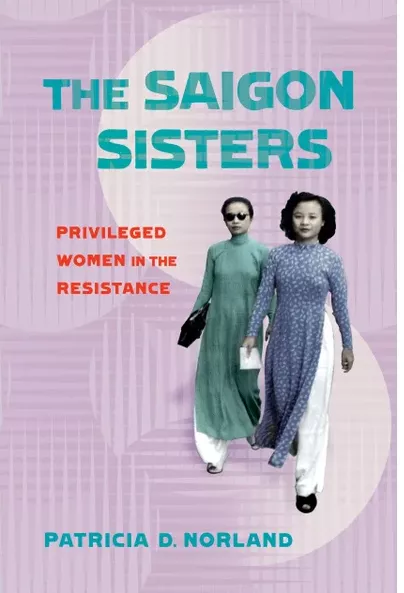Nathaniel L. Moir reviews The Saigon Sisters: Privileged Women in the Resistance by Patricia D. Norland

In Vietnamese studies and books analyzing the wars for Indochina in the twentieth century, the amplification of women's roles, perspectives, and voices is a salutary trend. Patricia D. Norland, a public diplomacy officer and former member of the non-profit organization, the Indochina Project, positively contributes to this development. In this informative collection of oral histories, nine women provided Norland with their personal stories and comprehensive thoughts; the author conducted the interviews in French, beginning in 1989.
Norland's project began with meeting Nguyen Thi Oanh, a social worker, who then slowly brought Norland into Oanh's network of friends whose relationships emerged during their years as students at the prestigious Lycée Marie Curie in the late 1940s. The group, which included three siblings—Minh, Trang, and Thanh—along with six other friends, and called themselves the "Saigon Sisters," joined the resistance against French and American intervention in ways as diverse as the individuals who offered their memories for Norland to organize into this illuminating collection. Their views are transcendent in many respects. As Minh, the eldest of the three biological sisters explained: "Our generation was the generation at the crossroads" (238). The political awakening inculcated in these women led them to resist directly against French and later American imperialism, with the only other options being to collaborate, or to leave Vietnam.
1950 served as a pivotal year sparking revolutionary fervour for these women, but also for thousands of students across South Vietnam. Among key events leading to decisive action for the Saigon Sisters, the death of Tran Van On—a student who died as a result of police violence during a massive protest in front of the Associated State of Vietnam's Ministry of Education in Saigon—served as a catalyst and also marked the generational division Minh perceived. Through separate and illuminating chapters, each of the different sisters recounts her political evolution after January 1950, along with how she adjusted as French colonial domination and Confucian order diminished, and as concomitant social expectations of women in South Vietnam changed....
Moir, Nathaniel L. "Book Review: The Saigon Sisters: Privileged Women in the Resistance." Pacific Affairs, vol. 95. no. 3. (September 2022) .
The full text of this publication is available via Pacific Affairs.




